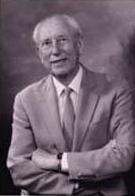Introduction
Causal inference -- the art and science of making a causal claim about the relationship between two factors -- is in many ways the heart of epidemiologic research. Under most circumstances if we see an association between an exposure and a health outcome of interest, we would like to answer the question: is one causing the other? We care about causal inference because, ultimately, we want to intervene to improve public health, and interventions can be targeted on removing known causes of adverse health outcomes (or adding known causes of beneficial health outcomes).
Moving from measuring an association to inferring a causal link is not trivial. Before we decide whether a demonstrated association is plausibly causal, we need to first know what a cause is. To find this out requires a brief look into causal theory. This exercise will introduce you to causal theory as used by epidemiologists and will lead you through the steps that epidemiologists commonly use to assess whether an observed association is plausibly causal. Finally, this exercise will show you why it's often difficult to make a confident claim of causality from epidemiological data.
Faculty Highlight: Dr. Mervyn Susser

Dr. Mervyn Susser is Special Lecturer of Epidemiology, Mailman School of Public Health, and Sergievsky Professor of Epidemiology Emeritus of The Gertrude H. Sergievsky Center, College of Physicians and Surgeons.
Dr. Susser received his medical degree in 1950, from the University of Witwatersrand in Johannesburg, South Africa. He began his career in community and primary health care in Alexandra, a township for Africans on the outskirts of the city. Then in England from 1956, for nearly a decade thereafter, he taught in the Department of Social and Preventive Medicine at Manchester University.
His main research, in collaboration with Zena Stein, was on epidemiological and family and cultural aspects of mental retardation and child development, on psychiatric disorders, and on reproductive health and neuro- developmental disorders.
As Professor and Head of Epidemiology at Columbia University School of Public Health (1966-1978), this joint research moved into large-scale studies of the epidemiology of nutritional effects on child development, including the landmark Dutch Famine Study.
From 1978 through 1990, Dr. Susser was Sergievsky Professor of Epidemiology and Director of the newly endowed Sergievsky Center. He continued to conduct research in collaboration with Zena Stein on neurodevelopment and reproduction, and also on HIV /AIDS.
Dr. Susser is renowned not only for his research, but also for his thinking and writing on causality and causal inference. He remains a leading thinker and inspirational figure in the Department of
Epidemiology here at Columbia.
Read more about Dr. Susser's work:
Susser, M. Causal thinking in the health sciences: concepts and strategies of epidemiology. New York: Oxford Press, 1973. (This book is available in the library).


